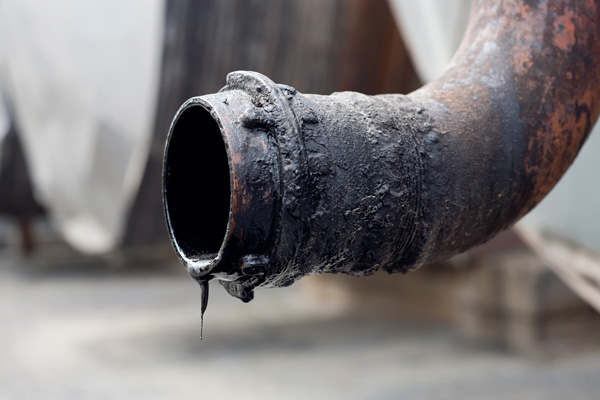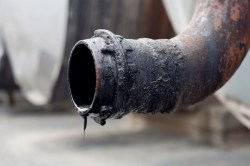Supporters of the Keystone XL pipeline cheered Tuesday’s release of a study that deemed diluted bitumen — the heavy crude mined in Alberta’s tar sands that Keystone would carry to Texas — just as safe to transport via pipeline as other forms of crude oil. They see the results as further clearing the way for approval of the pipeline.
But environmental groups criticized the methodology and limited scope of the study, which was conducted by the National Academy of Sciences. From Inside Climate News:
[T]he conclusions were based not on new research but primarily on self-reported industry data, scientific research that was funded or conducted by the oil industry, and government databases that even federal regulators admit are incomplete and sometimes inaccurate.
Critics also faulted the study for comparing diluted bitumen (or dilbit) to other heavy Canadian crudes, instead of to the conventional light oils for which most U.S. pipelines were built. Environmentalists have argued that tar-sands and other heavy oils, which must be diluted with chemicals in order to be moved through pipelines, could be more corrosive to those pipelines. And the study only addressed the likelihood of a spill, not the negative impacts — to the economy, the environment, and human health — were a spill to occur.
The report examined the potential for pipeline leaks but did not address the consequences of a spill, the key concern for environmentalists and people who live near pipelines. …
Carl Weimer, executive director of the nonprofit, nonpartisan Pipeline Safety Trust, said the report’s conclusions aren’t surprising, given its narrow scope.
The report “only tells us that the probability of a failure of a pipeline carrying dilbit is no different than the probability of the failure of an oil pipeline carrying other types of heavy oils,” Weimer said in a statement. Regulators have “so far failed to analyze whether the consequences of dilbit pipeline failures are greater than those of conventional oil spills.”
There’s good reason to be particularly worried about dilbit spills:
[D]ilbit behaves differently from conventional crude oil when it spills into water. A 2010 dilbit spill in Michigan’s Kalamazoo River is still being cleaned up nearly three years later. Unlike conventional oil, which usually floats on water, dilbit is composed of bitumen—a heavy crude oil—and light hydrocarbons used to thin the bitumen so it can flow through pipelines. During the Kalamazoo spill, the light chemicals gradually evaporated, leaving the bitumen to sink into the riverbed.
Because the study found no additional dangers posed by dilbit, it doesn’t recommend updating pipeline rules.
Of course, calling tar-sands pipelines no riskier than other oil pipelines isn’t exactly a huge comfort. From 1990 to 2011, more than 110 million gallons of oil spilled from U.S. pipelines. The question is not just whether there’s a high chance Keystone XL could leak, but what the consequences would be if — more like when — it did.
The report came out on the same day Obama made an unexpected mention of Keystone XL in his hotly anticipated climate speech. But Reuters ignored that plot twist in reporting on the study’s impacts:
While the report might not put to rest debate over the safety and impact of importing more Canadian crude, it added to growing signs President Barack Obama is likely to finally approve construction of the line after a more than four year wait that has frustrated Canadian politicians and operator TransCanada Corp.
“I think it’s harder to come up with reasons not to approve it than to approve it,” said Sarah Emerson, director at Energy Security Analysis Inc in Boston. “Most people in the industry expect it to be a foregone conclusion.”
But if Obama sticks to his word — that he won’t approve the pipeline if it’s found to “significantly exacerbate the problem of carbon pollution” — the question of leaks along Keystone should be moot.




